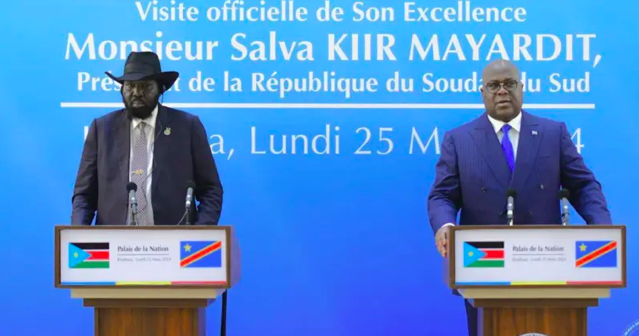In an exchange with journalists on Monday, President Félix Tshisekedi of the Democratic Republic of Congo (DRC) addressed the complexities surrounding his nation’s relationship with neighboring Rwanda. This discussion occurred following a meeting with South Sudan’s President, Salva Kiir, who is also the current leader of the East African Community, during his visit to Kinshasa.
President Tshisekedi responded to inquiries about the potential construction of a barrier along the DRC’s border, a notion suggested by some citizens and non-political organizations as a solution to ongoing security issues. The DRC shares its borders with nine countries, including Rwanda, which is accused of supporting the M23 rebel group that has clashed with Congolese forces in the eastern part of the country. Rwanda, on its part, continues to deny these allegations and counters by accusing the DRC of collaborating with the FDLR, a rebel group opposed to the Rwandan government.
Tshisekedi emphatically rejected the idea of building a wall, labeling it as impractical and financially unwise given the thousands of kilometers of border DRC shares with its neighbors. Instead, he emphasized the underlying issue is not with the Rwandan people or the Congolese, pointing out that the problem lies with specific leadership decisions aimed at destabilizing DRC. He expressed confidence that these issues are transient, forecasting a return to normal relations once the current tensions subside.
The backdrop to this diplomatic dialogue includes ongoing conflict in the DRC’s east, where fighting with the M23 group persists despite regional efforts to restore peace. Following a year of military presence by the East African Community forces, which concluded at the end of 2023 without significant progress against the M23, the Southern African Development Community (SADC) troops were deployed, amid Rwanda’s objections and concerns over partiality.
Amidst these tensions, Tshisekedi and Kiir called for the revitalization of the Nairobi and Luanda agreements, aiming for a swift resolution to the insecurity plaguing the DRC’s eastern regions. They advocate for an integrated approach to these agreements to find a comprehensive solution to the ongoing conflicts.





























































